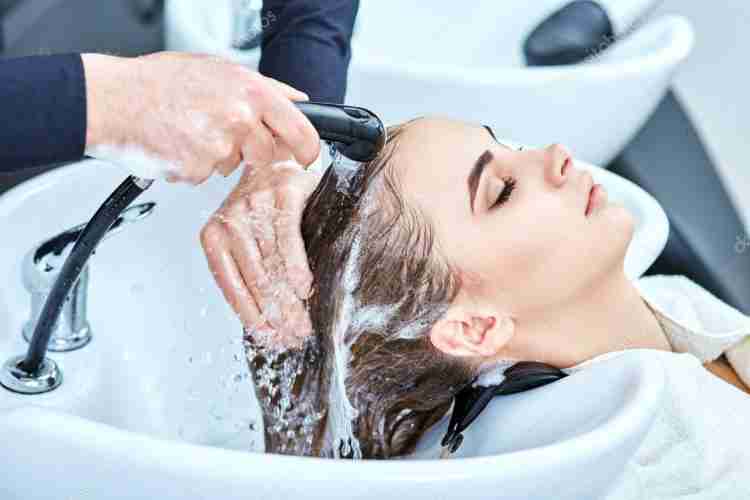What Shampoo is Good for Oily Hair? Tips for Beauticians
As a professional beautician, understanding the nuances of different hair types is vital for giving accurate advice to clients. One question that often comes your way is, 'what shampoo is good for oily hair?' Oily hair can be incredibly challenging to manage, and clients frequently struggle to find a product that caters to their specific concerns without over-drying or worsening the oiliness.
Not all shampoos are created equal, and when it comes to choosing one for oily hair, the right formulation plays a massive role. In this article, well unpack everything a beautician needs to know, from key ingredients to look for, to product recommendations and specialized advice for long-lasting results. Lets dive in to understand the best approaches for this common yet manageable hair care conundrum.

What Causes Oily Hair?
Before diving into shampoo recommendations, its crucial to understand why some clients have oily hair. The scalp produces sebum, a natural oil that keeps the skin and hair hydrated. However, excessive production can lead to greasy, limp locks. Factors contributing to oiliness in hair include:
- Over-washing, which can strip the scalp of natural oils and trigger overproduction as a response.
- Hormonal imbalances, often seen during puberty, pregnancy, or menstrual cycles.
- Using unsuitable hair products that weigh hair down or leave behind residue.
- Poor diet, such as consuming high-fat and high-sugar foods, which may stimulate sebum production.
Knowing these factors helps you educate clients and suggest a holistic approach alongside recommending a quality shampoo.
Key Ingredients to Look for in Shampoos for Oily Hair
When guiding a client toward the right shampoo for oily hair, focus on products with the following ingredients:
- Salicylic Acid: This exfoliating agent removes excess oil and cleanses the scalp effectively.
- Tea Tree Oil: Known for its antibacterial properties, tea tree oil helps combat scalp buildup.
- Witch Hazel: A natural astringent that tightens pores and reduces oil secretion.
- Charcoal: Excellent for detoxifying and deeply cleansing hair.
- Lemongrass or citrus extracts: These lend a fresh feel while cutting through grease.
Avoid shampoos containing heavy conditioners, oils, or silicones, as these can exacerbate oily hair issues.
How to Choose the Right Shampoo for Oily Hair
Clients often ask, 'What shampoo is good for oily hair?' The answer depends on their specific needs and hair type. Heres a breakdown:
Clarifying Shampoos
Clarifying shampoos are one of the best options for oily hair. They are designed to remove buildup and deliver a deep clean, making them perfect for clients who use a lot of styling products or have persistent oily scalps. However, advise clients to use clarifying shampoos sparingly, as overuse can lead to dry or irritated skin.
Learn more about proper shampooing habits by checking how to wash hair without shampoo.
Volumizing Shampoos
If the clients hair tends to go flat due to excess oil, volumizing shampoos can add texture and lift. They usually contain lightweight ingredients designed to prevent buildup. This way, hair remains fresh and bouncy.
Sulfate-Free Shampoos
Sulfates are effective cleansers but can also strip the scalp of natural oils, leading to overcompensation by the sebaceous glands. If a clients scalp is both oily and sensitive, recommend a sulfate-free shampoo with gentler cleaning agents.
Still wondering what makes a shampoo truly suitable? Visit this comprehensive shampoo guide.
Dry Shampoo: A Temporary Fix
While not a solution for daily use, dry shampoo can be a lifesaver for emergencies. Clients can use it to absorb excess oil and extend the life of their hairstyle between washes. Guide them to choose products free from talc and artificial fragrances for better scalp health.
Top Shampoo Recommendations for Oily Hair
Based on feedback from beauticians and reviews, here are some standout products to recommend:
- Paul Mitchell Tea Tree Special Shampoo: Infused with tea tree oil, this formula is excellent for removing buildup and refreshing the scalp.
- Neutrogena Anti-Residue Shampoo: This clarifying shampoo excels at detoxifying hair without over-drying.
- LOreal Paris Elvive Extraordinary Clay: With three refined clays, it tackles oily roots and leaves hair balanced.
- Pantenes Pro-V Micellar Series: A gentle yet effective solution for oily hair types.
- LIVANA Naturals Citrus Shampoo: Packed with natural lemon extracts, this product eliminates grease while nourishing strands. Learn more about their offerings at best shampoo for thinning hair.
Tips for Beauticians to Help Clients Manage Oily Hair
- Encourage clients to avoid applying conditioner on the scalp to prevent further oil buildup.
- Recommend washing hair two to three times per week; over-washing can exacerbate oil production.
- Suggest lifestyle changes such as improving diet and managing stress to naturally balance sebum levels.
- Always perform scalp analyses to offer personalized advice tailored to each clients needs.
- Educate clients on the importance of rinsing thoroughly to prevent product residue.
Maintenance tips like these go hand-in-hand with the right shampoo to ensure healthier, oil-free hair.
:max_bytes(150000):strip_icc()/052323-wash-hair-lead-030512bbbc09454e9c8a8916bd97c986.jpg)
Frequently Asked Questions
How often should clients with oily hair wash their hair?
For most clients, washing 2-3 times per week is sufficient. Daily washing can disrupt natural oil balance and should generally be avoided unless otherwise necessary.
Can clients mix shampoos for better results?
Yes, alternating between a clarifying shampoo and a regular sulfate-free shampoo can balance the scalps oil production without over-drying.
What are the worst shampoo ingredients for oily hair?
Avoid heavy silicones, parabens, and excessive conditioning agents. These can weigh hair down and lead to more scalp buildup.
Looking for more hair care insights? Explore expert tips on choosing shampoos.
In conclusion, understanding 'what shampoo is good for oily hair' and educating your clients accordingly is a win-win for everyone. By recommending products with the right ingredients, offering manageable routines, and ensuring holistic care, beauticians can significantly enhance client satisfaction and hair health.
This article contains affiliate links. We may earn a commission at no extra cost to you.
